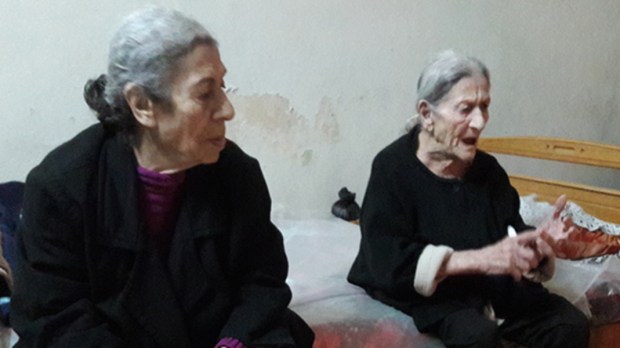Ten years after the civil war in Syria began, Aid to the Church in Need (ACN) has called on the United States and the European Union to facilitate the delivery of humanitarian aid to the heavily sanctioned country. “It is our duty to provide help to the suffering civil population of Syria—and especially to the rapidly dwindling Christian minority. In their name I beg you to implement the existing international legal framework, which allows humanitarian exceptions to the embargo,” said Thomas Heine-Geldern, ACN executive president.
The legal exemptions included in the sanctions regime currently imposed upon Syria cannot be utilized fully, Heine-Geldern explained; obstacles hindering money transfers and the import of humanitarian goods render any form of assistance impossible. “Although the sanctions foresee exceptions for money transfers related to humanitarian help, the mechanism does not work.”
According to Heine-Geldern, the European IBAN and American SWIFT banking codes block transfers bearing any reference to Syria and any city within the country. “Consequently, it becomes almost impossible for charitable organizations to transfer funds for humanitarian purposes to meet the needs of the suffering population.”
For Heine-Geldern, money transfers are of vital importance because Church institutions and NGOs do not have themselves the capacity to ship the goods needed for the survival of almost 14 million Syrians in need of humanitarian assistance. In other settings, “we normally send money to our counterparts to buy the food, medical help and clothing locally,” he said.
For this reason, the executive president of ACN calls on the international community to instruct banks to accept money transfers designated for humanitarian aid, which is already provided for in the exceptions to the existing sanctions.
Besides the obstacles preventing the transfer of money, Heine-Geldern discussed the problems inherent in importing humanitarian goods into Syria. “To apply for permits, our partners often have to overcome insurmountable multilingual procedures put in place by the sanction authorities.” Permits are necessary even for small amounts of goods and involve high fees, he explained.
It is particularly difficult to import goods that can be used for humanitarian as well as other purposes (so-called dual-use goods), Heine-Geldern said. As the interpretation of these provisions is very broad, he continued, even the powdered milk urgently needed for undernourished babies and children falls into this category.
Therefore, Heine-Geldern calls on Western governments to implement procedures that clearly define what is permitted and what is prohibited and then make it possible to carry out all measures that are allowed under the sanction regime. He suggested that “an interim solution could be providing a general license for designated NGOs.”
Thanks to its donors, ACN has been able to support the suffering civil population of Syria, among them especially the Christians of various denominations. Since the outbreak of the conflict in mid-March 2011, they have been living in catastrophic conditions. Due to forced migration, the Christian presence in Syria is threatened with extinction.
Despite all the difficulties, almost $50M has been donated to support more than 900 humanitarian and pastoral projects operated by thelocal Church since the beginning of the civil war.
This article was first published by Aid to the Church in Need and is republished here with kind permission. To learn more about ACN’s mission to help the suffering Church visit www.churchinneed.org

